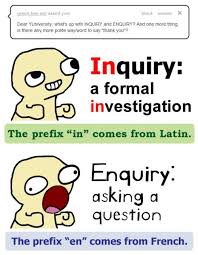EMPATHY VS. SYMPATHY
The terms empathy and sympathy are two
words that people are often confused with. This may be attributed to the fact
that both terms focuses on a person’s relationship with the feelings and
experiences of another person. This post will help you distinguish between the
two and enable you to properly use them in your writing.
Both empathy and sympathy are rooted from
the greek word pathos which means “suffering” or “a quality that evokes pity or
sadness.” The prefix em- means “in” or “within” while the prefix sym- means
“with.”
As a noun, empathy refers to “the ability to understand
and share the feelings of another.” It is often used to denote the ability of a
person to imagine himself in the situation of another person, including his
emotions, ideas, or opinions. For example, if a friend of yours tells you news
about a death in her family and it made you feel as if it’s also your loss,
then you have empathy.
“A Sad Liberal’s Extremely Short Thanksgiving Plea for Empathy”
Huffington Post
Huffington Post
“Why the country is having a big debate about empathy after Donald Trump’s
election”
Vox
Vox
“Empathy by the Book: How Fiction Affects Behavior”
Wall Street Journal
Wall Street Journal
On the other hand, sympathy as a noun denotes “feelings of
pity and sorrow for someone else’s misfortune” or “understanding between
people; common feeling.” It does not require you to have the same feelings with
the person you symphatize with but it enables you to have compassion for that
person and understand his suffering.
“Nicolas Sarkozy: France reaction veers from sympathy to sarcasm”
BBC News
BBC News
“Refugee survivor has no sympathy for Springvale Commonwealth Bank asylum
seeker blast suspect”
Herald Sun
Herald Sun
“Clinton Offers Support, Sympathy to Mayors After Iowa Shootings”
Bloomberg
Bloomberg
A simple trick to determine which term to use is to assess what kind of
emotion you are feeling towards the emotions or experience of another person.
If you can only feel pity, sadness, or compassion towards the difficulty of
that person, then you have sympathy for him. However, if you
can genuinely put yourself in his situation, then you have empathy for
him.















